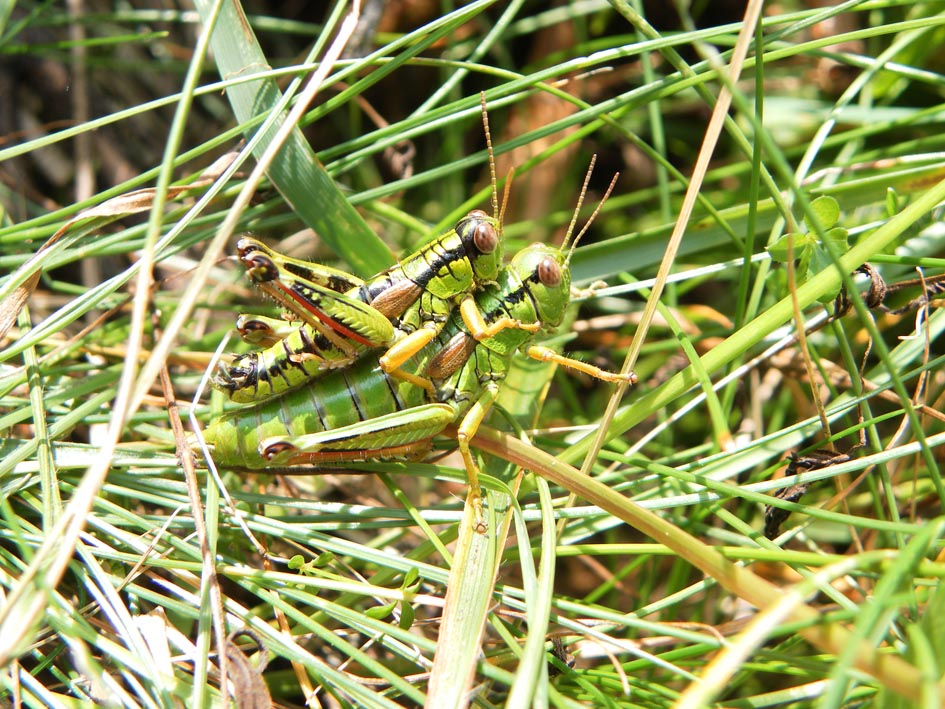Évolution temporelle de la répartition des Orthoptères dans le massif vosgien : possibles effets des changements climatiques sur la biodiversité
 Résumé ̶ Les organismes ectothermes sont particulièrement concernés par les changements climatiques observés depuis le début du XXe siècle, car il est prévu que les espèces thermophiles vont s’étendre alors que les espèces de milieux frais risquent de voir leurs aires de répartition se contracter. Les Orthoptères constituent un bon indicateur pour étudier les effets du réchauffement à large échelle car les espèces possèdent des caractéristiques écologiques contrastées. En Alsace, une analyse faite à partir de données non standardisées des Orthoptères récoltées depuis le début des années 2000 révèle des effets sur plusieurs espèces qui sont certainement à imputer aux changements globaux. Les espèces thermophiles progressent en altitude dans les Vosges alors que les espèces mésophiles voient leurs habitats se contracter dans les milieux les plus frais et leur amplitude altitudinale régresser.
Résumé ̶ Les organismes ectothermes sont particulièrement concernés par les changements climatiques observés depuis le début du XXe siècle, car il est prévu que les espèces thermophiles vont s’étendre alors que les espèces de milieux frais risquent de voir leurs aires de répartition se contracter. Les Orthoptères constituent un bon indicateur pour étudier les effets du réchauffement à large échelle car les espèces possèdent des caractéristiques écologiques contrastées. En Alsace, une analyse faite à partir de données non standardisées des Orthoptères récoltées depuis le début des années 2000 révèle des effets sur plusieurs espèces qui sont certainement à imputer aux changements globaux. Les espèces thermophiles progressent en altitude dans les Vosges alors que les espèces mésophiles voient leurs habitats se contracter dans les milieux les plus frais et leur amplitude altitudinale régresser.
Mots-clés ̶ glissement de répartition, espèces menacées, Miramella alpina, Pseudochorthippus montanus, Tettigonia cantans.
Abstract ̶ Temporal evolution of the distribution of Orthoptera in the Vosges Mountains: possible effects of climate change on biodiversity
Ectotherm organisms are particularly concerned by the global change that affects ecosystems since the beginning of the 20th century. It is expected thermophile species will expand their ranges, whereas mesophile species will see their ranges contracted. Orthoptera constitutes a good model to study the effects of global warming at a large scale because they harbor species with contrasted ecology and life-history traits. In Alsace, an analysis conducted on opportunistic twenty-year span data set of Orthoptera between 2000 and 2019 suggests population trends for several species that might result from climate change. Thermophile species expand their range to higher altitude habitats in the Vosges, whereas the ranges of mesophile species are shrinking in the coldest and higher habitats.
Keywords ̶ range shift, threatened species, Miramella alpina, Pseudochorthippus montanus, Tettigonia cantans.
